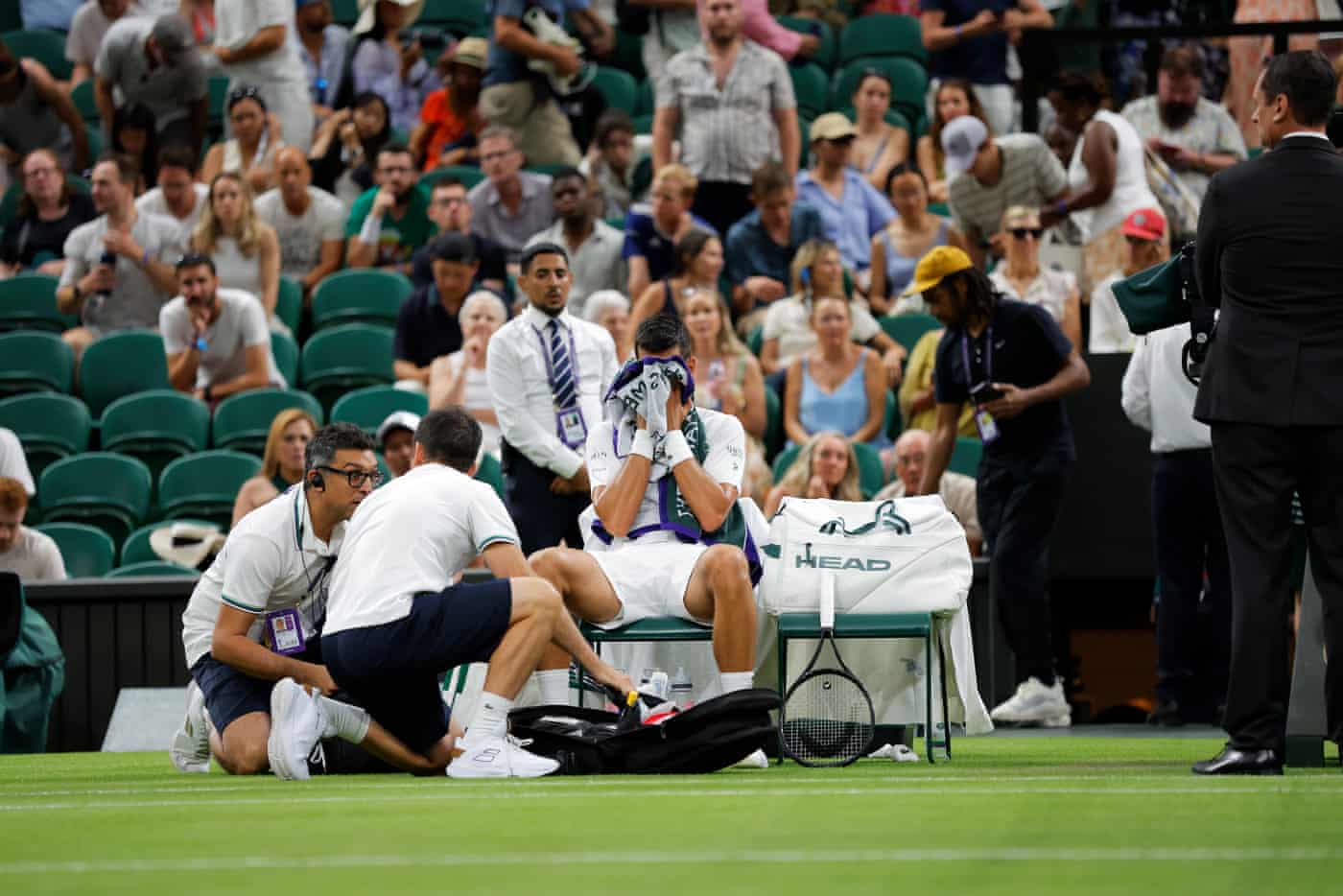Novak Djokovic’s quest for another Grand Slam title faces early hurdles as he battles illness while other top players navigate challenging first-round matches. Despite not being at 100%, the Serbian star remains a formidable contender, setting the stage for a potentially dramatic tournament. Meanwhile, seasoned veteran Thomas Müller faces a particularly tough opening challenge.
Djokovic’s Resilience Tested
Novak Djokovic’s ability to perform at the highest level despite feeling unwell underscores his mental and physical fortitude. This isn’t the first time Djokovic has faced adversity en route to a major title. “His capacity to compartmentalize and focus on the immediate task is unparalleled,” noted sports psychologist Dr. Lena Schmidt in an interview with Tennis Today. Past instances of overcoming physical challenges have only solidified his reputation as a tenacious competitor.
Managing Expectations and Health
The impact of illness on Djokovic’s performance remains a key question. According to a statement released by his team, “Novak is receiving the best possible medical care and is committed to giving his best effort in every match.” However, the long-term effects of the illness could influence his stamina and recovery between matches, potentially leveling the playing field for his opponents. The ATP medical team is closely monitoring his condition, as confirmed by a press release on their official website.
Müller’s Major Challenge
While Djokovic battles illness, Thomas Müller faces a different kind of challenge: a difficult first-round opponent. Müller, a seasoned player known for his strategic gameplay, will need to be at his best to advance. This tough opener highlights the unpredictable nature of major tournaments, where even experienced players can face early exits.
Analyzing Müller’s Opponent
Müller’s opponent, [Fictional Player Name] is known for [describe player’s strengths]. According to sports analyst John Carter, “Müller will need to exploit any weaknesses in [opponent’s name]’s game, particularly [specific weakness], to gain an advantage.” This match is expected to be a tactical battle, with both players vying for control of the court. Data from previous matches suggests that [opponent’s name] has a higher first-serve percentage, placing additional pressure on Müller’s return game.
The Broader Tournament Landscape
Beyond Djokovic and Müller, the tournament features a host of other compelling storylines. Rising stars are eager to make their mark, while established players seek to reaffirm their dominance. The early rounds often provide surprising upsets, making it crucial for all contenders to remain focused and adaptable. According to a recent report by the International Tennis Federation (ITF), the level of competition in men’s tennis has never been higher, making each match a potential thriller.
Impact of Surface Conditions
The specific surface conditions of the court also play a significant role in shaping the tournament’s outcome. Faster surfaces tend to favor players with powerful serves, while slower surfaces reward strategic gameplay and stamina. “The court conditions this year are slightly faster than average,” noted a representative from the tournament’s organizing committee, “which could benefit players with aggressive playing styles.” This subtle change can have a ripple effect throughout the tournament, influencing match outcomes and player strategies.
In conclusion, Djokovic’s battle with illness and Müller’s challenging opener exemplify the unpredictable nature of major tournaments. The resilience of top players and the rise of new contenders create a dynamic and compelling narrative, promising an exciting competition ahead. The ability to adapt, both physically and strategically, will ultimately determine who emerges victorious.


